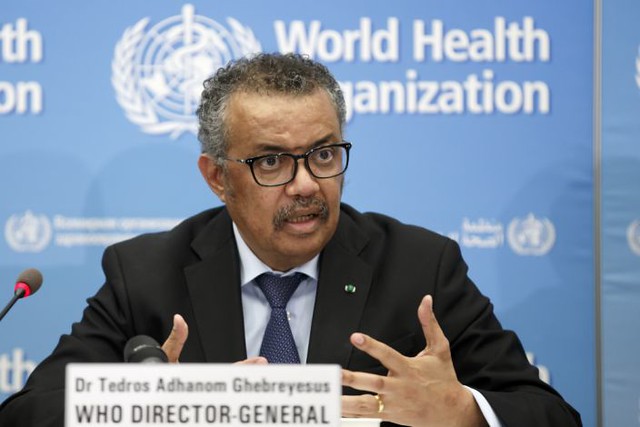In the span of 23 days, Israel’s attacks killed over 8,000 people in Gaza, including 3,195 children.
Hundreds of injured people in the Gaza Strip are undergoing surgeries without anaesthesia due to an acute shortage of medicines, according to Dr. Tedros Adhanom Ghebreyesus, the Director-General of the World Health Organization.
Speaking to AlJazeera, Dr. Ghebreyesus described the life-or-death conditions that medical professionals are contending with as approximately 26 tonnes of medical aid still await entry into the territory, which is currently facing an Israeli imposed siege.
“We managed to hear back from all our colleagues in Gaza this morning. As with everyone in Gaza, they and their families are not safe. They said the last two nights were extremely tense with a lot of air strikes—without fuel, water, electricity, connectivity and safe shelter to evacuate to,” he stated in a post on X, formerly known as Twitter.
“Hospitals are overwhelmed with patients. More health supplies are needed. We call again for an immediate humanitarian ceasefire, protection of health facilities and humanitarian workers, sustained connectivity, and to work towards lasting peace,” he added.
Gaza, home to more than 2.3 million Palestinians, has been bombarded with Israeli airstrikes for more than three weeks, crippling an already dire infrastructure and pushing residents to desperation. According to reports, some were forced to break into UN warehouses to take basic necessities in a desperate bid to feed their children.
Thomas White, representing the UN Relief and Works Agency for Palestine Refugees (UNRWA) in Gaza, issued a dire warning: “This is a worrying sign that civil order is starting to break down after three weeks of war and a tight siege.”
Gaza’s government media office disclosed last week that Israel has dropped an alarming 12,000 tonnes of explosives on the Strip since the conflict began, a weight comparable to the nuclear bomb the United States deployed on Hiroshima in 1945.
In the span of 23 days, Israel’s attacks killed over 8,000 people in Gaza, including 3,195 children. Additionally, more than one million residents have been internally displaced, with the majority seeking refuge in hospitals and educational facilities.
On Friday evening, Israel unleashed its deadliest attack on the Strip, and resources needed for basic human survival are more scarce than ever.
UN Secretary-General Antonio Guterres reiterated appeals to halt the bloodshed and establish a ceasefire.
“The situation in Gaza is growing more desperate by the hour. I regret that instead of a critically needed humanitarian pause, supported by the international community, Israel has intensified its military operations,” said Guterres.
Israel had imposed a total blockade on Gaza—cutting off food, water, and electricity—following a Hamas attack on October 7. Although limited supplies have trickled in, the Palestinian enclave of 2.3 million people remains under relentless Israeli bombardment.
UNRWA has been a critical provider of necessities in Gaza. Many displaced Palestinians have sought refuge in schools run by the agency. Several hospitals have ceased operations, and others are at risk of closure due to a lack of fuel.
“Supplies on the market are running out while the humanitarian aid coming into the Gaza Strip on trucks from Egypt is insufficient,” warned UNRWA.
The agency also lamented its own stretched capacity, citing that more than 50 of its staff have been killed by airstrikes, severely hampering its aid distribution.
More than 613,000 out of 1.4 million internally displaced persons are taking shelter in 150 UNRWA facilities across the beleaguered territory. Overcrowding, poor sanitation, and a looming public health crisis are compounding an already devastating healthcare system, which medical professionals describe as being in “a state of total collapse.”
With some UN shelters hosting up to 12 times their intended capacity, the risk of a prolonged and severe public health crisis is becoming increasingly palpable, adding another layer of misery to a population already struggling to survive.
The United Nations has reported that all remaining fuel reserves are being sparingly used to sustain the water supply in the south of Gaza. Meanwhile, there has been no agreement to permit additional fuel into the embattled enclave.







